Antisemitic Messages Near The Novi Sad Synagogue
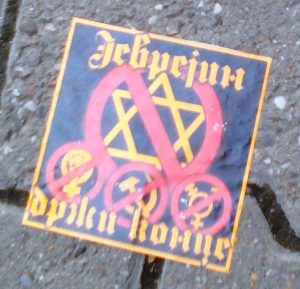
In November 2020, a message reading “The Jew pulls all the strings” was found stuck on the sidewalk near the Novi Sad Synagogue. One of the oldest anti-Jewish myths and stereotypes is the one about “Jewish power” and the “global Jewish conspiracy”. In its contemporary form, this myth represents Jews as a powerful, secret, global group, often referred to as a “Jewish lobby”, that manipulates governments, banks, financial institutions, academia, the media, film and entertainment industry, and other national and international institutions, for malicious purposes of Jewish world domination and control. This anti-Jewish myth has been present as one of the most prominent antisemitic narratives in various forms from the New Testament, the Protocols of the Elders of Zion, to anti-globalism and various contemporary conspiracy theories.
Divided In Blood
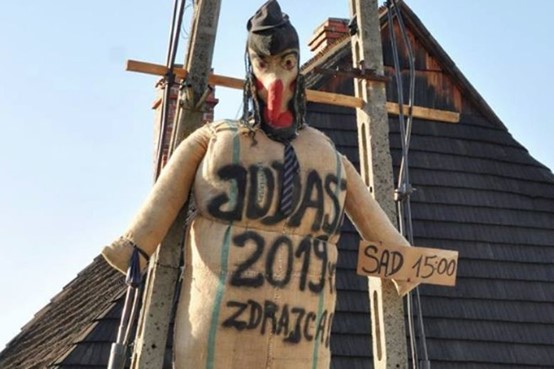
“His blood on us and on our children” (Matthew 27:24-25). Christianity appeared in Poland during the 10th century, and began to hugely impact Polish culture, customs and society. One of the first myths to emerge at the junction of Christianity and Judaism was the use of the biblical story about the trial and crucifixion of Jesus. The claim was coined that “the Jews have the blood of Jesus on their hands” because it was the representatives of the priests and the Sanhedrin (the highest Jewish religious and judicial institution in ancient Judea) who were responsible for sentencing Jesus to death. In the Middle Ages, there was a conviction that Jews were outlawed because of killing the Messiah. Traces of such thinking can still be found today.
Greed, Money-lending and Usuary
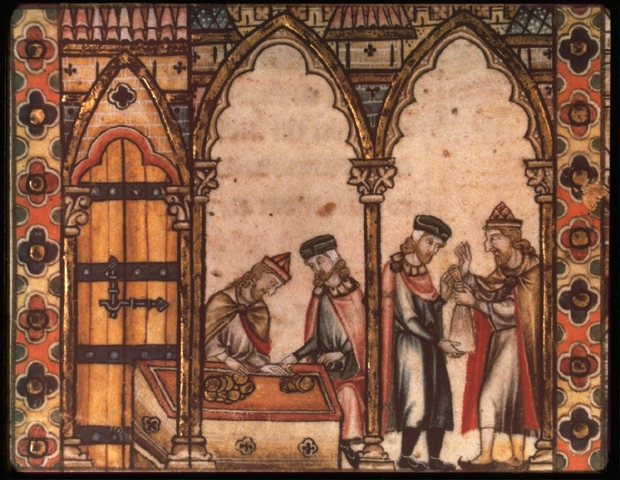
Since the 12th century, religious myths (Jews as deicides) have been complemented with economic stereotypes. Jews were described as rich and rampant as well as “money-lenders”, “bargainers” and “usurers” – a view still commonplace today. Excluded from land ownership, agriculture, and the Christian merchants’ and handicrafts guilds, Jews were increasingly limited to the small trade, peddler and junk trade. The money trading with interest played a special role, which according to church dogmatics violated divine doctrine and remained forbidden to Christians.
The Poet’s Scapegoat
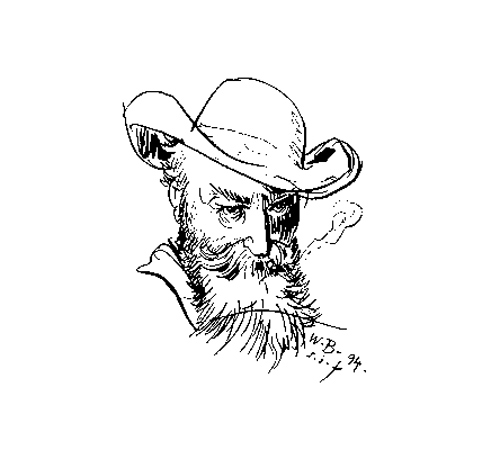
“And the Hebrew, sly and craven, Round of shoulder, nose, and knee, Slinks to the Exchange, unshaven And intent on usury” – Wilhelm Busch (1872). This English translation of a verse in Wilhelm Busch’s “Helen Who Couldn’t Help It” reflects a common trope in German antisemitism: the Geldjude, or the equation of Jews with money and usury, greed and parasitic financial capitalism. In his work Busch puts this opinion in the context of the worldview of a pious uncle who wants to save his niece from the depravity of the big city.
The Corfu Pogrom 1891
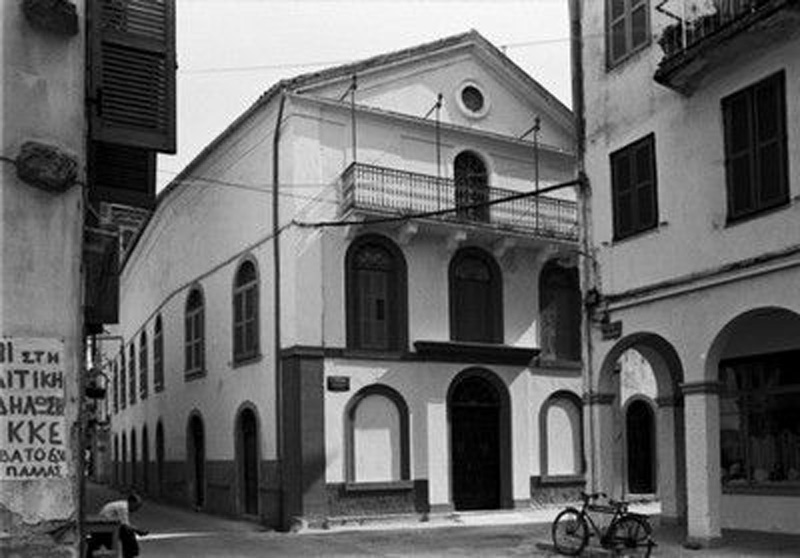
The pogrom in Corfu in April 1891 is an infamous example of a blood libel accusation, which stirred ethnic antagonism, religious passion and existing anti-Jewish stereotypes and got out of control. Jews in Corfu were accused of having murdered a girl in order to use her blood for ritual purposes. The Jewish community came under siege. The extreme violence had a spillover effect on the neighboring islands of Zakynthos and Lefkada, and the news shocked the public in Great Britain, France, Spain and Austria.

